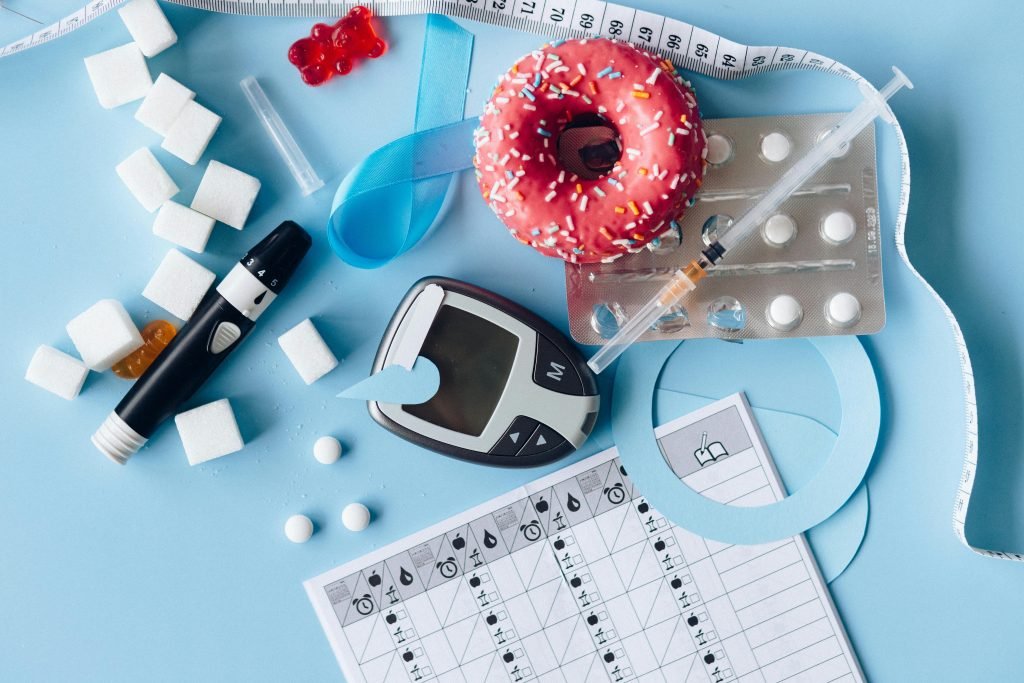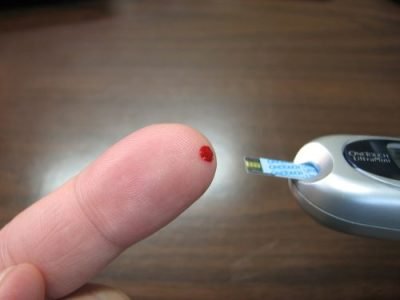Do I Need To Take Insulin Dosage?
You’ve heard about insulin, the hormone that helps regulate blood sugar levels, but do you actually need to take insulin dosage? It’s a common question asked by individuals who have been diagnosed with diabetes or those who are at risk of developing it. In this article, we’ll explore the factors that determine whether or not you need insulin and why it may be an essential component of your treatment plan. So, let’s get started and find out if insulin dosage is necessary for you.
Understanding Insulin
What is insulin?
Insulin is a hormone that plays a crucial role in regulating blood sugar levels in the body. It is produced by the pancreas and helps to transport glucose from the bloodstream into the cells where it can be used as a source of energy. Insulin also plays a role in the storage and utilization of fats and proteins.
The role of insulin in the body
Insulin acts as a key that unlocks the cells, allowing glucose to enter and provide energy. It helps to maintain stable blood sugar levels by signaling the liver to store excess glucose as glycogen and inhibiting the release of stored glucose into the bloodstream. Additionally, insulin plays a role in controlling the breakdown of fats and proteins for energy.
Types of insulin
There are different types of insulin available, each with varying onset and duration of action. Rapid-acting insulin starts working within 15 minutes and peaks within 1-2 hours. Short-acting insulin starts working within 30 minutes and peaks in 2-4 hours. Intermediate-acting insulin takes effect within 1-2 hours and peaks in 4-12 hours. Long-acting insulin has a slow onset but can last up to 24 hours. Your healthcare provider will determine the type of insulin that best meets your individual needs.
How insulin is administered
Insulin can be administered through injections using a syringe, insulin pen, or insulin pump. It can also be inhaled using an inhaler device. The route of administration and frequency of insulin dosing depend on various factors, including the type of insulin, individual needs, and personal preference. Your healthcare provider will guide you on the most appropriate method for insulin administration.
Indications for Insulin
Diabetes diagnosis
Insulin is often prescribed for individuals with a diagnosis of diabetes. In type 1 diabetes, the pancreas produces little to no insulin, requiring external insulin administration for survival. In type 2 diabetes, the body becomes resistant to the effects of insulin or doesn’t produce enough insulin to meet the body’s needs. Insulin therapy may be recommended to achieve optimal blood sugar control in both types of diabetes.
High blood sugar levels
Persistently high blood sugar levels, also known as hyperglycemia, can be an indication for insulin therapy. When lifestyle modifications and oral medications are unable to adequately control blood sugar levels, insulin may be necessary to help bring them down to a healthy range. It is important to work closely with your healthcare provider to determine the appropriate insulin regimen to manage high blood sugar levels effectively.
Insulin resistance
Insulin resistance is a condition in which the body’s cells do not respond properly to the insulin produced. This can lead to elevated blood sugar levels. In some cases, insulin therapy may be prescribed to overcome insulin resistance and improve glucose uptake by the cells. Lifestyle changes and other medications may also be recommended in combination with insulin therapy to address insulin resistance.
Gestational diabetes
Gestational diabetes is a type of diabetes that occurs during pregnancy. It is characterized by high blood sugar levels that can pose risks to both the mother and baby. Insulin therapy may be required to achieve and maintain optimal blood sugar control during pregnancy. Your healthcare provider will monitor your blood sugar levels closely and recommend the appropriate insulin regimen to ensure the health and well-being of both you and your baby.

Testing Blood Sugar Levels
Importance of blood sugar monitoring
Regular monitoring of blood sugar levels plays a critical role in managing diabetes and insulin therapy. It provides valuable information about how well your blood sugar is controlled and helps guide treatment decisions. By monitoring your blood sugar levels, you can identify patterns, make adjustments to your insulin regimen or other treatment options, and take necessary actions to maintain stable blood sugar levels.
Recommended frequency of testing
The frequency of blood sugar testing may vary depending on individual circumstances and treatment goals. Your healthcare provider will provide specific guidelines tailored to your needs. Generally, individuals with type 1 diabetes or those on intensive insulin therapy may need to test their blood sugar levels multiple times throughout the day, including before and after meals, and at bedtime. For individuals with type 2 diabetes or those on less intensive insulin regimens, testing may be recommended less frequently.
Devices for testing blood sugar levels
There are various devices available for testing blood sugar levels, including blood glucose meters, continuous glucose monitors (CGMs), and flash glucose monitoring systems. Blood glucose meters require a small blood sample obtained through finger pricking, while CGMs and flash glucose monitoring systems provide continuous, real-time glucose readings through sensors placed on the skin. Your healthcare provider can help you choose the most suitable device for your needs.
Interpreting blood sugar results
Understanding and interpreting blood sugar results is essential in managing diabetes and adjusting insulin therapy. Your healthcare provider will guide you on target blood sugar ranges and what to look for in your results. Generally, blood sugar levels should be within a target range before meals, and slightly higher after meals. Consistently high or low blood sugar levels may indicate the need for changes in your insulin regimen, medication dosage, or lifestyle modifications.
Treatment Options
Lifestyle changes
Lifestyle modifications play a vital role in managing diabetes and insulin therapy. They include healthy eating, regular physical activity, weight management, and stress reduction. Adopting a balanced diet that focuses on whole foods, monitoring carbohydrate intake, and following an exercise routine can help improve insulin sensitivity and blood sugar control. Your healthcare provider can provide personalized guidance on lifestyle changes to complement your insulin therapy.
Oral medications
In addition to insulin, there are various oral medications available to manage diabetes. These medications work by increasing insulin production, reducing glucose production by the liver, improving insulin sensitivity, or slowing down the breakdown of carbohydrates in the gut. They may be used alone or in combination with insulin therapy depending on individual needs and treatment goals. Your healthcare provider will determine the most appropriate oral medications for your situation.
Insulin therapy
Insulin therapy is a cornerstone treatment for individuals with diabetes who require external insulin to achieve optimal blood sugar control. It may involve the use of different types of insulin, such as basal insulin to provide a steady background insulin level, and prandial or mealtime insulin to cover the rise in blood sugar after meals. Insulin therapy can be adjusted and tailored to individual needs to maintain stable blood sugar levels throughout the day.
Combination therapy
Combination therapy involves the use of both insulin and oral medications to manage diabetes. This approach may be necessary when blood sugar levels are not adequately controlled by oral medications alone. By combining different treatment modalities, the aim is to optimize blood sugar control while minimizing the risk of hypoglycemia. Your healthcare provider will determine the best combination therapy approach based on your specific needs.

Signs that Insulin is Needed
Persistently high blood sugar levels
If your blood sugar levels consistently remain above the target range despite lifestyle modifications and oral medications, insulin therapy may be necessary. Persistently high blood sugar levels can increase the risk of long-term complications associated with diabetes. Insulin therapy can help regulate blood sugar levels effectively and prevent further progression of the disease.
Symptoms of uncontrolled diabetes
Uncontrolled diabetes can manifest with various symptoms that may indicate the need for insulin therapy. These symptoms include excessive thirst, frequent urination, unexplained weight loss, increased hunger, fatigue, blurred vision, slow wound healing, and recurrent infections. If you experience any of these symptoms, it is important to consult with a healthcare professional to determine the appropriate treatment, which may include insulin therapy.
Other medical conditions
Some medical conditions, such as certain hormonal disorders, cystic fibrosis, and liver or kidney disease, can interfere with insulin production or utilization by the body. In such cases, insulin therapy may be necessary to compensate for the body’s inability to regulate blood sugar levels effectively. Your healthcare provider will evaluate your medical history and conduct appropriate tests to determine if insulin therapy is required to manage your specific condition.
Consulting a Healthcare Professional
Importance of medical advice
Consulting a healthcare professional is crucial when considering insulin therapy. They will assess your individual circumstances, medical history, and lifestyle factors to determine the most appropriate treatment plan for you. Insulin therapy requires careful monitoring, dosage adjustments, and regular follow-up to ensure optimal blood sugar control and minimize potential risks. Your healthcare provider will provide guidance, support, and education throughout your insulin therapy journey.
Choosing the right healthcare provider
When seeking medical advice for insulin therapy, it is important to choose a healthcare provider with expertise in diabetes management. Consideration should be given to a healthcare professional who understands your specific needs, is knowledgeable about the latest advancements in diabetes care, and is accessible for ongoing support and guidance. Building a trusting relationship with your healthcare provider will help ensure the success of your insulin therapy.
Medical tests and evaluations
Before initiating insulin therapy, your healthcare provider may order specific tests and evaluations to assess your overall health, determine the appropriate insulin regimen, and monitor your response to treatment. These tests may include blood work to assess kidney and liver function, lipid profile, and blood glucose levels. Additional tests, such as an eye examination, foot evaluation, and cardiovascular risk assessment, may also be recommended to address any potential complications associated with diabetes.
Discussing insulin options
During your consultation with a healthcare professional, they will discuss the various insulin options available and help you determine the most suitable regimen based on your individual needs. Factors such as lifestyle, work schedule, and personal preferences will be taken into consideration when selecting the appropriate insulin type, administration method, and dosing schedule. Openly discussing your concerns and goals will facilitate a collaborative decision-making process with your healthcare provider.

Insulin Dosage and Administration
Determining the appropriate dosage
The appropriate insulin dosage is determined by factors such as individual needs, blood sugar levels, lifestyle, and treatment goals. Your healthcare provider will guide you in determining the initial dosage and make adjustments based on your response and ongoing monitoring. It is important to follow the prescribed dosage carefully and communicate any concerns or changes in your circumstances to your healthcare provider.
Methods of insulin administration
Insulin can be administered via various methods, including subcutaneous injections using a syringe, insulin pen, or insulin pump. Your healthcare provider will help you choose the most suitable method based on your needs and preferences. Subcutaneous injections are the most common method, involving the introduction of insulin into the fatty tissue just beneath the skin. Insulin pumps provide a continuous infusion of insulin, while insulin pens offer a convenient and portable option for insulin administration.
Self-administration vs. assistance
With proper training and guidance from healthcare professionals, many individuals are able to self-administer insulin. Self-administration allows for flexibility and independence in managing blood sugar levels. However, in some cases, individuals may require assistance with insulin administration due to physical limitations or other factors. Healthcare providers and caregivers can provide support and guidance to ensure safe and effective insulin administration.
Storage and handling of insulin
Proper storage and handling of insulin is essential to maintain its effectiveness. Insulin should be stored in a cool, dry place, away from direct sunlight and extreme temperatures. It should not be frozen or exposed to high temperatures. Insulin vials or cartridges that are in use should be kept at room temperature. Always check the expiration date and discard any expired or damaged insulin. Your healthcare provider will provide specific instructions on storage and handling based on the type of insulin prescribed.
Potential Risks and Side Effects
Hypoglycemia
Hypoglycemia, or low blood sugar, is a potential risk associated with insulin therapy. It can occur if the insulin dosage is too high, meals are delayed or skipped, or excessive physical activity is undertaken without adjusting the insulin dosage or food intake. Symptoms of hypoglycemia include dizziness, weakness, sweating, confusion, shaking, and rapid heartbeat. It is important to recognize and promptly treat hypoglycemia by consuming fast-acting carbohydrates such as glucose tablets, fruit juice, or candy.
Allergic reactions
Allergic reactions to insulin are rare but can occur. Symptoms of an allergic reaction may include skin rash, itching, shortness of breath, or swelling of the face, lips, or tongue. If you experience any signs of an allergic reaction, it is important to seek medical attention immediately.
Weight gain
Weight gain can be a side effect of insulin therapy, especially if blood sugar levels were previously uncontrolled. Insulin helps the body utilize glucose effectively, which can result in an increase in weight. Proper meal planning, portion control, and regular physical activity can help manage weight while on insulin therapy.
Injection site reactions
Injection site reactions, such as redness, swelling, or itching at the site of insulin injection, can occur. These reactions are usually mild and temporary. To minimize the risk of injection site reactions, it is important to rotate injection sites and follow proper injection techniques. If you experience persistent or severe injection site reactions, it is important to consult with your healthcare provider.
Managing Insulin Therapy
Creating a routine
Establishing a routine for insulin dosing and blood sugar monitoring is crucial in managing diabetes and insulin therapy. It helps ensure consistency and adherence to treatment protocols. Incorporating insulin dosing into daily activities, such as meal times or bedtime, can make it easier to remember. Developing a routine also includes regularly refilling insulin supplies, monitoring blood sugar levels, and scheduling follow-up appointments with your healthcare provider.
Meal planning and timing
Meal planning and timing are important considerations when managing insulin therapy. Consistency in carbohydrate intake and meal timing can help ensure the effectiveness of insulin dosing. It is important to work with a registered dietitian or healthcare provider to develop a meal plan that meets your nutritional needs, focuses on balanced meals, and accommodates your insulin regimen. Monitoring post-meal blood sugar levels can help determine if any adjustments are necessary.
Exercise and insulin
Regular physical activity is beneficial for individuals with diabetes, but it can impact blood sugar levels and insulin requirements. Engaging in exercise can cause blood sugar levels to drop, so adjustments to insulin dosing may be necessary. It is important to monitor blood sugar levels before, during, and after exercise and communicate with your healthcare provider to determine the most appropriate insulin adjustments. Balancing exercise, nutrition, and insulin dosing is key to maintaining stable blood sugar levels during physical activity.
Regular monitoring and adjustments
Regular monitoring of blood sugar levels and ongoing communication with your healthcare provider are essential in managing insulin therapy effectively. Monitoring blood sugar levels before and after meals, at bedtime, and during periods of illness or stress can provide insights into the effectiveness of your insulin regimen. Regular follow-up appointments with your healthcare provider allow for adjustments to insulin dosing, optimization of treatment, and addressing any concerns or challenges you may be experiencing.
Conclusion
Insulin therapy plays a crucial role in managing diabetes and achieving optimal blood sugar control. It is a valuable tool that helps individuals with diabetes live healthy and fulfilling lives. The decision to initiate insulin therapy should be individualized, taking into consideration factors such as blood sugar levels, lifestyle, and medical history. Working closely with a healthcare professional is essential in determining the most appropriate treatment plan, ensuring proper insulin administration, and addressing any potential risks or side effects. With the right guidance, support, and understanding, insulin therapy can be highly effective in improving overall health and enhancing quality of life for individuals with diabetes.



